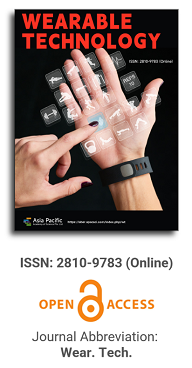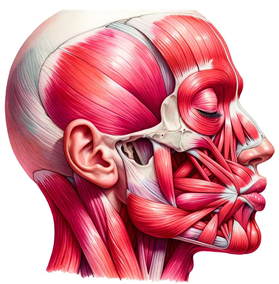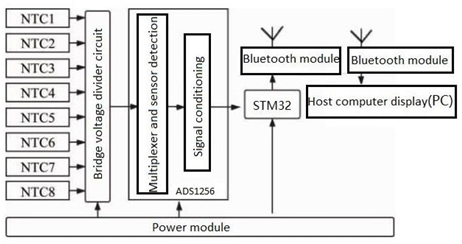

This paper delves deeply into the innovative realm of integrating human emotions with wearable technology. The primary focus is on the conceptualization and development of a kiss transfer device that harnesses the power of wearable technology to bridge the physical gap in human-human interactions. By investigating the intricate nuances of the human-human kissing process, the research seeks to replicate this intimate gesture through a technological medium. The paper not only elaborates on the anatomy, evolution, and hormonal dynamics of kissing but also underscores the transformative potential of wearable technology in capturing and transmitting these intimate moments. This exploration opens up new horizons for long-distance relationships, offering a tangible touchpoint that goes beyond traditional communication methods. Through this pioneering work, the research positions wearable technology as not just a tool for communication but as an extension of our human emotions and expressions.

A philosophical and technical view of artificial consciousness
Vol 4, Issue 1, 2023
Download PDF
Abstract
The article reflects various approaches of philosophy and programming to methods for solving the technical problem of creating and software implementation of artificial consciousness (AC). Various purposes of creation and basic approaches to determining the nature of AC are described. To solve the problem of creating an AC, an architecture is proposed that includes ten levels, starting from the basic level of collecting and systematizing information about the external world and ending with the upper level of influence on it, agreed with the person and the level of decision-making. The features of the delimitation of functions and the procedure for interaction between a person and an AC are considered in detail. In conclusion, the most important, from a programmer’s point of view, properties that characterize artificial consciousness are given.
Keywords
References
- Palamarchuk OT. Will artificial intelligence be able to possess... consciousness? Society: philosophy, history, culture. 2022; (1): 28-35. doi: 10.24158/fik.2022.1.3
- Pshenokova IA. Basic methods and approaches to artificial consciousness modeling. News of the Kabardin-Balkar Scientific Center of RAS. 2022; 2(106): 72-81. doi: 10.35330/1991-6639-2022-2-106-72-81
- Zubova YV, Pichko NS, Kostylev AY. Philosophical prerequisites in the study of artificial intelligence. Corporate governance and innovative development of the economy of the North: Bulletin of the Scientific Research Center for Corporate Law, Management and Venture Investment of Syktyvkar State University. 2022; 1: 100-105.
- Pshenokova IA. Basic methods and approaches to artificial consciousness modeling. News of the Kabardin-Balkar Scientific Center of RAS. 2022; 2(106): 72-81. doi: 10.35330/1991-6639-2022-2-106-72-81
- Gafiatullina OA. Philosophy of modeling in neuroinformational technologies of artificial intelligence. Socio-humanitarian knowledge. 2021; 1: 259-263.
- Tolgurov TZ. On the problem of imitation of apperception processes by artificial intelligence systems. News of the Kabardin-Balkar Scientific Center of RAS. 2022; 5(109): 81-92. doi: 10.35330/1991-6639-2022-5-109-81-92
- Golubev SS, Gubin AM, Ivanus AI, et al. Conceptual approaches to ultra-long-term scientific and technological forecasting based on artificial generation of new knowledge. Innovations and investments. 2023; 8: 236-239.
- Russell S, Norvig P. Artificial intelligence: a modern approach. Moscow: Williams, 2nd ed. 2006. p. 1409.
- Hegel GVF. Science of Logic. M.: AST; 2018. p. 912.
- Shcherbakov AY. Modern computer security. Theoretical foundations. Practical aspects. Textbook for students of higher educational institutions. Book world. The series “High School”; 2009. p. 351.
Supporting Agencies
Copyright (c) 2024 Andrey Shcherbakov, Artem Uryadov
License URL: https://creativecommons.org/licenses/by/4.0/

Prof. Zhen Cao
College of Information Science & Electronic Engineering, Zhejiang University
China, China
Processing Speed
-
-
-
- <5 days from submission to initial review decision;
- 62% acceptance rate
-
-
Asia Pacific Academy of Science Pte. Ltd. (APACSCI) specializes in international journal publishing. APACSCI adopts the open access publishing model and provides an important communication bridge for academic groups whose interest fields include engineering, technology, medicine, computer, mathematics, agriculture and forestry, and environment.





